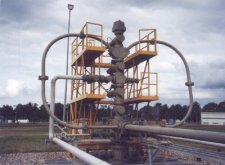RCS-7 Linux
Dec
3
2008
RCS-7 Linux is a new generation SCADA system using the stability and cost efficiency of Linux with the proven history of the RCS-7. RCS-7 Linux is designed to support light-weight systems with just a few hundred points or mega-systems with a 250,000+ points utilizing multiple SCADA servers and distributed operator control centers.

- Real-time SCADA system
- Intel or AMD based platforms
- Field proven in diverse applications
- Distributed SCADA servers and Operator stations
- User configurable
- Fully supported
- BENEFITS
- Cost-effective hardware and software
- XML input/output interface for IT applications
- Designed for easy maintenance
- Support for legacy applications and equipment
- Distributed processors, multiple SCADA servers and workstations
- A single processor can be used for smaller systems
- Low cost of ownership
- Auspex field support
- OPERATIONAL FEATURES
- Telemetry data collection and storage
- Alarm generation, display and recording
- Real-time calculations
- Pop-up windows for operator actions
- Device statistics
- Data display and entry
- Composed data points (many to one for alarming)
- On-line help
- TELEMETRY
- Multiple protocols
- Data validation
- Data conversion
- Exception processing
- Process status, analog and accumulator data
- Range, limit and statistical data processing
- ALARMS
- User configured alarm format
- Alarm acknowledge/erase
- Persistent alarming of critical points
- CONTROLS
- Device control commands
- Digital commands
- Analog commands
- Monitor and report control progress
- DATA DISPLAY
- Multiple monitor workstations
- Alarms
- Trends
- Barcharts
- Status and numerical
- Tabular displays
- SIZING
- 16 data point types, 11 user defined
- 63 telemetry channels
- 1000 logical field devices (RTUs or PLCs)
- Unlimited formats





